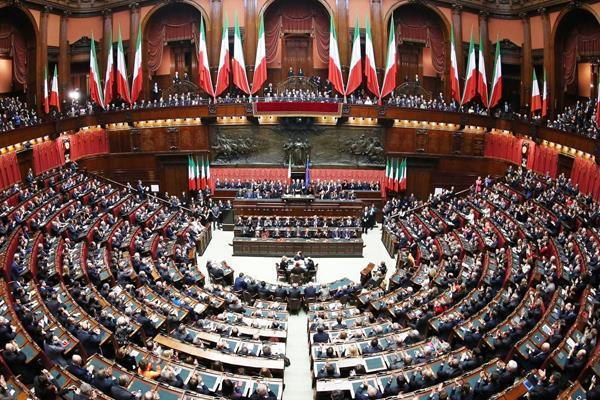
Italy’s parliament will reconvene on March 23 with the country looking for solutions to the political stalemate that emerged from the March 4 general elections.
On March 23 the newly-elected lower house Chamber of Deputies and upper house Senate will begin the process of electing their new speakers.
Not until both are chosen can consultations start between Italy’s President Sergio Mattarella and those vying to form a new government.
The right-wing coalition headed by the far-right League gained the largest share of the votes with 37 percent.
That was just over four points ahead of the anti-establishment Five Star Movement (M5S), which won more votes than any other single party.
League leader Matteo Salvini and M5S head Luigi Di Maio have ceded little ground in the aftermath of the election.
Both have said that they are open to working with other parties, but only if their individual manifestos are respected.
Their flagship policies appear incompatible, however.The right-wing coalition wants a flat tax of 15 percent and the M5S demands universal income for Italy’s poorest.
The right also has two major parties competing within its four-party group.
Former prime minister Silvio Berlusconi’s Forza Italia won 14 percent compared to the League’s 17 percent in the election.
Media mogul Berlusconi, 81, is strongly opposed to a government with the M5S.
He will meet with Salvini to discuss their candidates for speaker.
Meanwhile on March 19 Di Maio told his newly elected MPs that he wants the Chamber speaker for his party.
Further complicating matters are the two distinct voting systems in place for the Chamber and the Senate speakers.
The 321-seat Senate speaker will be chosen after a maximum of four votes, two each on March 23 and 24.
The vote for the Chamber’s speaker is potentially more complicated, with no limit to the number of ballots that can be held before a candidate is elected.
The aspiring speaker has to earn a majority vote from 630 MPs, so political leaders need to strike deals and force their MPs to vote with them.
With no one group holding close to a majority of Chamber seats, no-one knows how long that vote could take.